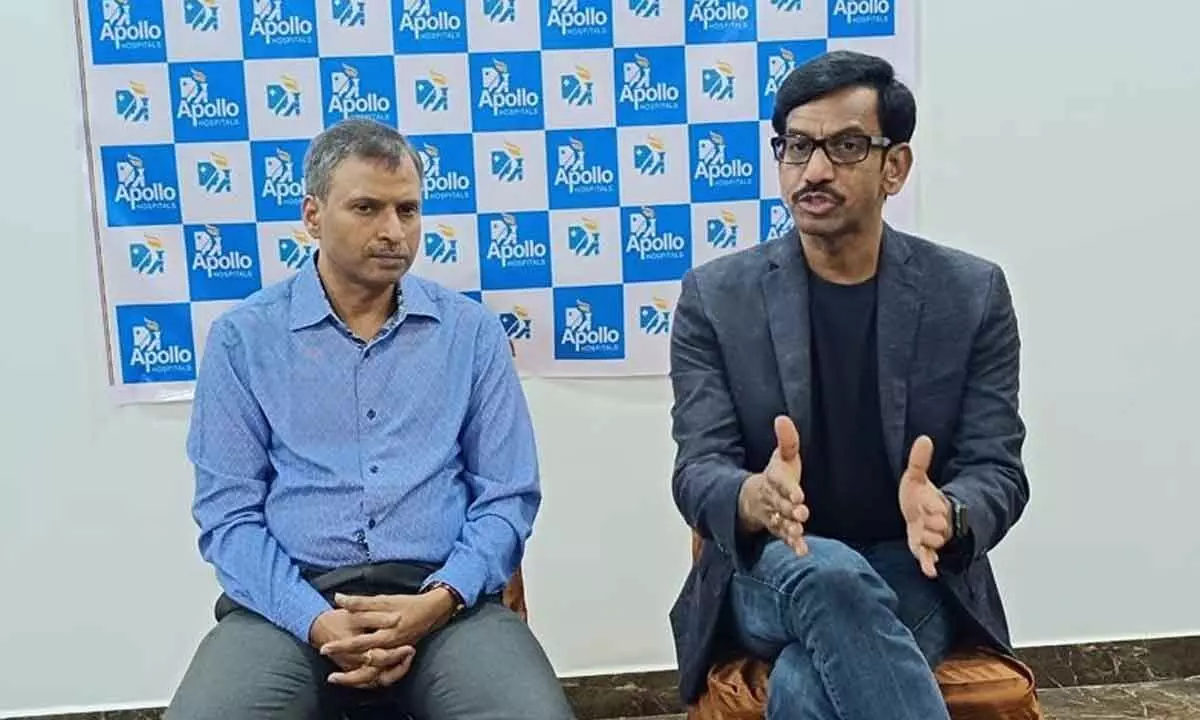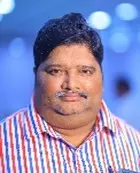Sudden increase of activity raises risk of heart failure

Dr YVC Reddy, interventional cardiologist explaining on the advanced technologies in treatment of heart diseases in Ongole on Saturday. Apollo Hospitals Chennai Senior GM V Nagarjuna Reddy is also seen
Dr Y Vijayachandra Reddy, Senior Consultant Interventional Cardiologist conducts an interactive session with the local cardiologists on the latest trends in the treatment
Ongole: Dr Y Vijayachandra Reddy, Senior Consultant Interventional Cardiologist with Apollo Hospitals Main Branch in Chennai said that a sudden increase in an activity like a workout, marathon running, or emotional outburst increases the risk of sudden block rupture in the arteries and causes the death of the person.
Dr YVC Reddy conducted an interactive session with the local cardiologists on the latest trends in the treatment in Ongole and spoke to media on Saturday.
He observed that the build-up of bad or LDL cholesterol under the lining of the blood vessels blocks the blood supply to and from the heart, which is called Coronary Artery Disease (CAD).
He said that CAD due to the build-up of bad cholesterol causes inflammation, calcium deposition, cellular proliferation, necrotic core formation in the affected arterial wall, and manifests into heart muscle damage, electrical aberrations in heart rhythm, interference in heart valve function, leading to sudden cardiac death.
He said that persons who suddenly increase the emotional and physical load on the heart experience the phenomenon called an acute heart attack, or acute coronary syndrome, which can cause severe heart muscle damage, arrhythmias, heart failure, pulmonary edema, or even death in just a span of five to ten minutes.
The cardiologist said that the coronary angiography identifies the extent of the severity of the blocks, and helps the doctor to choose the appropriate treatment, either with the medication along with lifestyle modifications, or go for the coronary angioplasty and stenting, or heart bypass surgery.
He said that the advancements in the field of interventional cardiology have enabled doctors to treat severe blocks with angioplasty and stenting, rather than going for bypass surgery.
He said that the special guide wires and special microcatheters are helping the cardiologists to reach the blocked and tough old blocks in the heart, special pressure balloons, and the thin strut drug-eluting stents that release the special drug into the area of treatment are increasing the success rate more than 95 per cent. He said that rotational atherectomy technology is helping them to treat hard calcium blocks by drilling through them, while orbital atherectomy, excimer laser angioplasty, and shock wave intravascular lithotripsy are useful to them in tackling the calcium.
He said that the decision to treat the heart blocks should be individualised for each patient, considering the risks, safety concerns, immediate and long-term outcomes, and cost-effectiveness.








